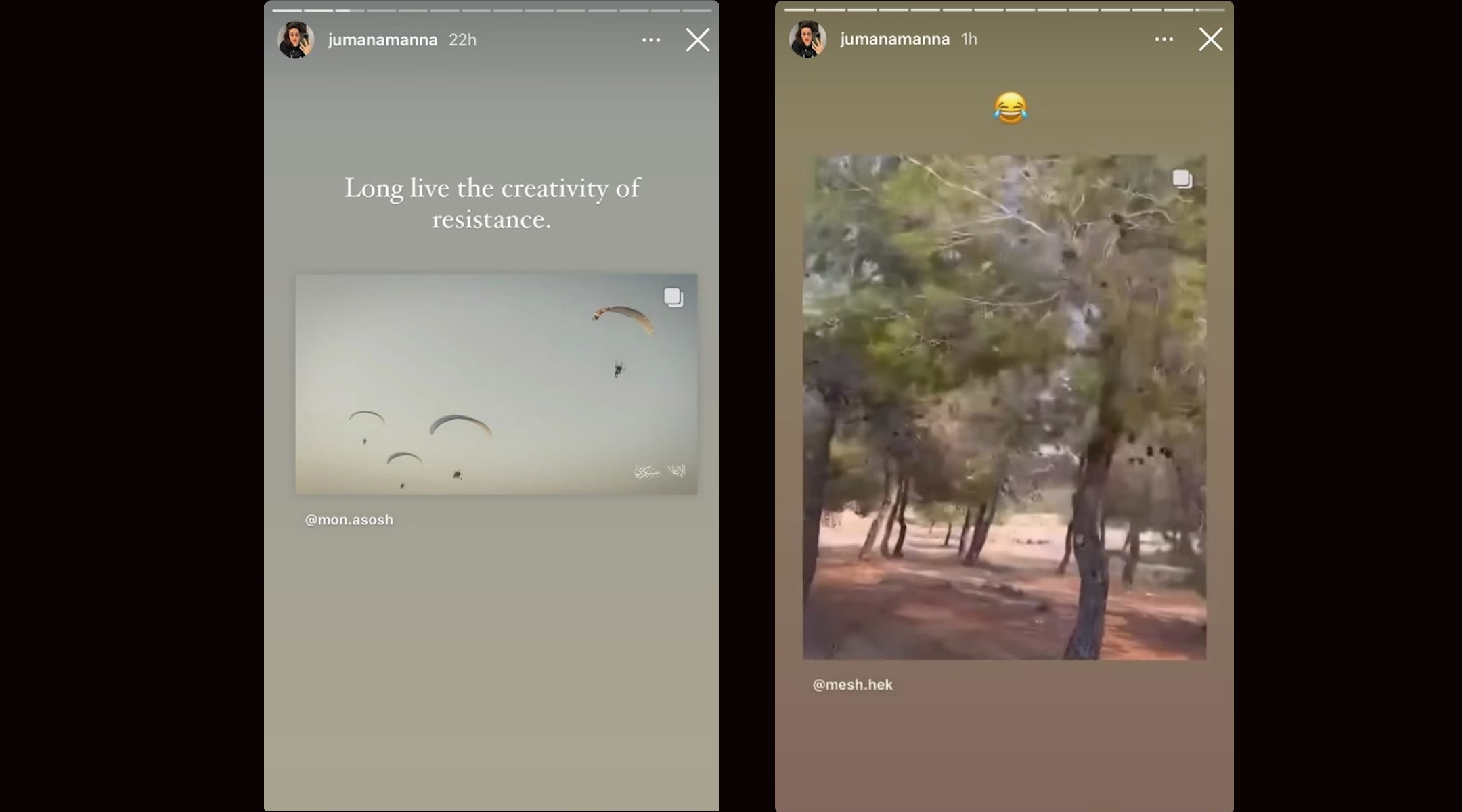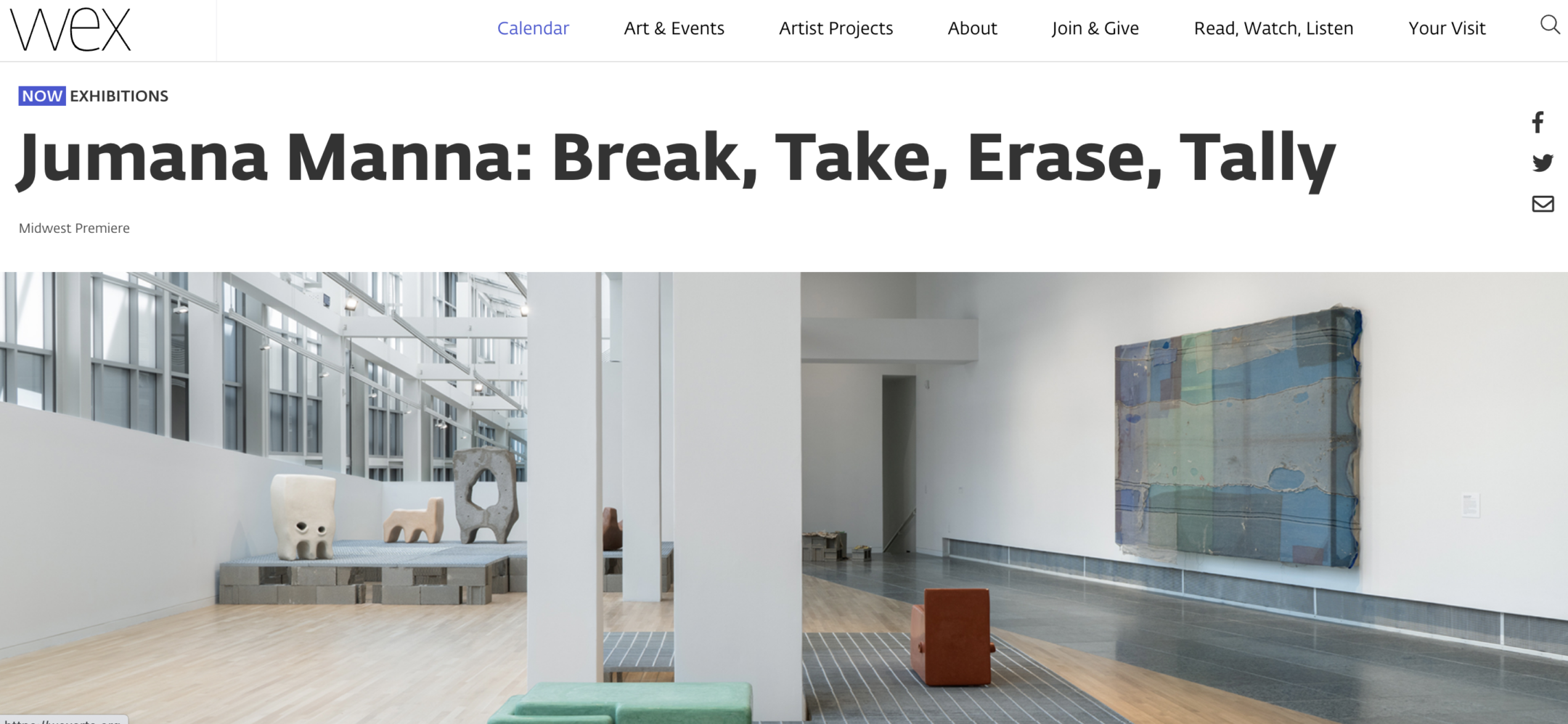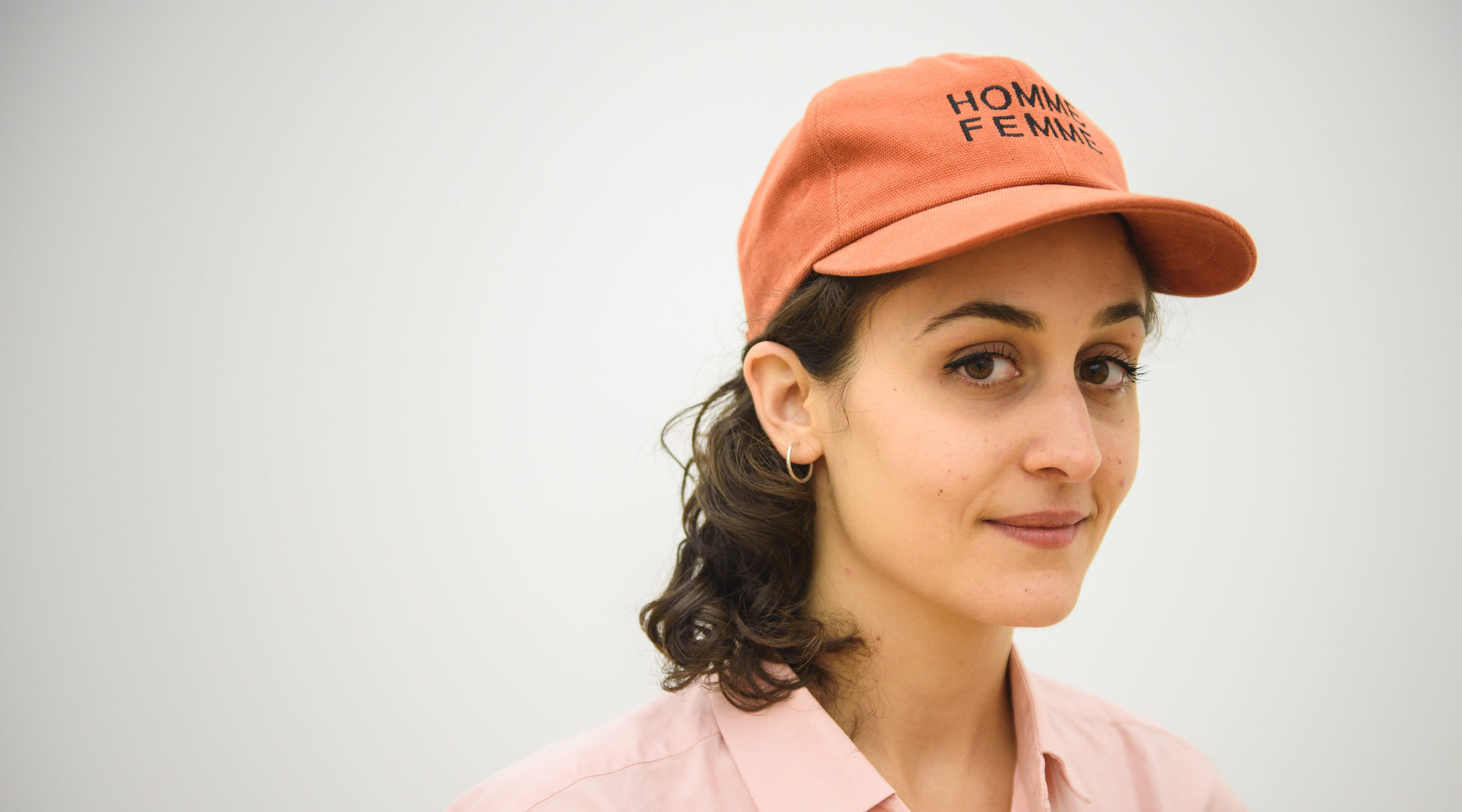(JTA) – A prestigious university art museum funded by the pro-Israel philanthropist Les Wexner says it will keep up an ongoing exhibit by a Palestinian artist who published posts celebrating Hamas’ Oct. 7 invasion of Israel on social media.
The decision has come even as Wexner’s foundation is penalizing Harvard University for not being more assertively pro-Israel.
The Wexner Center for the Arts, affiliated with the Ohio State University in Columbus, Ohio, says its current exhibit featuring the works of visual artist and filmmaker Jumana Manna will run through Dec. 30 as planned.
But the center canceled a planned November panel discussion due to feature Manna, saying in a statement, “Due to current world events, we do not feel this is the right time to have conversations about a region at war.” Les Wexner is the museum’s board chair.
Some Jewish artists are pressing the museum to do more, citing posts from Manna’s social media accounts. One post shows the comment “Long live the creativity of resistance” above an image of Hamas terrorists paragliding into Israel on Oct. 7, when Hamas killed more than 1,400 people and kidnapped hundreds more. Another shows a laughing-face emoji above a still from a video of teenagers riding bikes into Israel shortly before the Hamas attack. A third appeared to mock the music festival near Gaza where Hamas slaughtered hundreds.

Jumana Manna confirmed that she had posted laudatory reactions about images shared when Hamas attacked Israel on Oct. 7, 2023, but said she had not understood at the time that civilians had been harmed. (Instagram via source)
Manna, whose Instagram account is currently private, confirmed the posts as hers in an email to the Jewish Telegraphic Agency but said they were not intended to celebrate the murder of Jews.
She said they had been taken out of context and used in “a vindictive social media trolling campaign” against her. The watchdog group StopAntisemitism, which has been calling attention to people who have expressed support for Hamas’ attack, has been calling attention to Manna and exhorting its followers to ask the museum to cancel her exhibition.
Manna claimed she had made her “creativity of resistance” post “before having any knowledge of what became a shocking massacre on October 7th” and merely intended to celebrate “the stubborn and creative will to break free from captivity.” The laughing-face emoji post, she said, was not referring to the murders that would soon unfold, but to the “sense of astonishment” of Palestinian teenagers riding their bikes “into the lands their grandparents were expelled from.”
“I neither sanction nor celebrate the murder of civilians, be they Jewish, Palestinian or any other,” Manna said. “It was never my intention to trivialize pain and grief.” In a public statement she published Wednesday with the digital arts journal Hyperallergic, Manna continued to state that she had made her initial posts before she knew about the murders, writing, “At the time I shared my stories on Instagram, it had not become apparent that hundreds had been deliberately shot and kidnapped. I regretted my own comments after the news revealed the extent of the violence.”
Manna also signed an open letter published in the magazine Artforum earlier this month that called for a ceasefire in Gaza without initially condemning Hamas. Artforum’s editor-in-chief was fired last week over the letter, reportedly following pressure from Jewish and pro-Israel art curators and collectors.
The Wexner Center’s public relations manager, Melissa Starker, told JTA in a statement that the museum “serves as a vital forum where artists share ideas and where diverse audiences engage with the art and issues of our time.”
Starker continued, “While the center is committed to this mission, it is important to understand that the views expressed by the artists through their work are their own and do not represent the views of the Wexner Center for the Arts, the Wexner Center Foundation, its trustees, or The Ohio State University. An exhibition, performance, film, talk or any artist’s work shown within the center is not to be construed as approval or endorsement of the artist’s publications, activities, actions, or positions.”
Starker added that OSU “condemns all terrorist groups and terrorist attacks, including those perpetrated by Hamas on Israeli civilians, Americans, and others the weekend of October 7, 2023.”
The museum is part of a growing body of cultural institutions that have grappled with how to proceed with planned exhibitions and events in the wake of the Oct. 7 attack and Israel’s resulting war against Hamas in Gaza. Some have sought to tamp down expressions of pro-Palestinian support or solidarity, drawing criticism from members of the cultural community.
In New York City, the Jewish cultural center 92NY saw several authors and staff members disassociate themselves after it canceled a talk by a bestselling author who had signed an open letter harshly critical of Israel. El Museo del Barrio, also in New York City, decided not to display a work it had commissioned after the artists included a Palestinian flag in the display. And the Royal Ontario Museum in Canada altered artists’ statements accompanying their work to eliminate the word “Palestine” — then backtracked after the artists protested.
In the case of the Wexner Center, the decision to continue exhibiting Manna’s work is particularly notable because the nonprofit created by its board chair recently cut ties with Harvard University over what it said was an insufficiently pro-Israel posture from that school’s administrators.

Jumana Manna’s exhibit at the Wexner Center for the Arts is her first major exhibition in the United States. (Screenshot)
The Wexner Foundation, which funded leadership programs for Jewish professionals and visiting Israelis at Harvard’s Kennedy School of government for decades, announced in an Oct. 16 open letter that it was ending its partnership over “the dismal failure of Harvard’s leadership to take a clear and unequivocal stand against the barbaric murders of innocent Israeli civilians by terrorists.”
That move came after Harvard President Claudine Gay was slow to initially respond to the Hamas attack while several student groups blamed Israel entirely for the massacre, although Gay ultimately issued several statements condemning the group.
Les Wexner is the chair emeritus of the Wexner Foundation’s board of trustees and, along with his wife Abigail, signed the Harvard letter as chairs.
A spokesperson for the Wexner Foundation did not return requests for comment. Starker told JTA that the foundation “has no connection” to the arts center. The foundation’s website lists the museum alongside a medical center and local nonprofits as among the “Wexner family philanthropic interests” beyond the foundation. Les Wexner is from the Columbus area.
The Jewish artist Barbara Rabkin, who has been advocating against Manna’s exhibit on social media, told JTA she believed the Wexners should “encourage” their namesake museum “to remove the works of antisemites and to reconsider [their] funding/naming strategies in light of this information — much as they’ve done with Harvard.”
Rabkin also said she thought the museum should cancel Manna’s exhibition.
“She has participated in promoting and celebrating Hamas’ inhumane brutal slaughtering and kidnapping of innocent civilians in Israel,” Rabkin said of Manna. “Her social media posts are a desecration of everything art is supposed to stand for — the elevation of humanity.”
Manna’s exhibit at the Wexner Center, “Jumana Manna: Break, Take, Erase, Tally,” is the first major exhibition in the United States of the Berlin-based artist, who was born in Princeton, New Jersey; grew up in Jerusalem; and holds Israeli citizenship. It includes screenings of her 2022 film “Foragers,” which centers on Palestinian foragers of wild plants who, in the museum’s description, are “criminalized by the Israeli government in the name of nature conservation.”
“Working with the team at Wexner Center has been a pleasure throughout,” Manna told JTA, adding that she hoped to restage the panel discussion at another time. “It saddens me to know that they are subject to this smear campaign.”
JTA has documented Jewish history in real-time for over a century. Keep our journalism strong by joining us in supporting independent, award-winning reporting.






